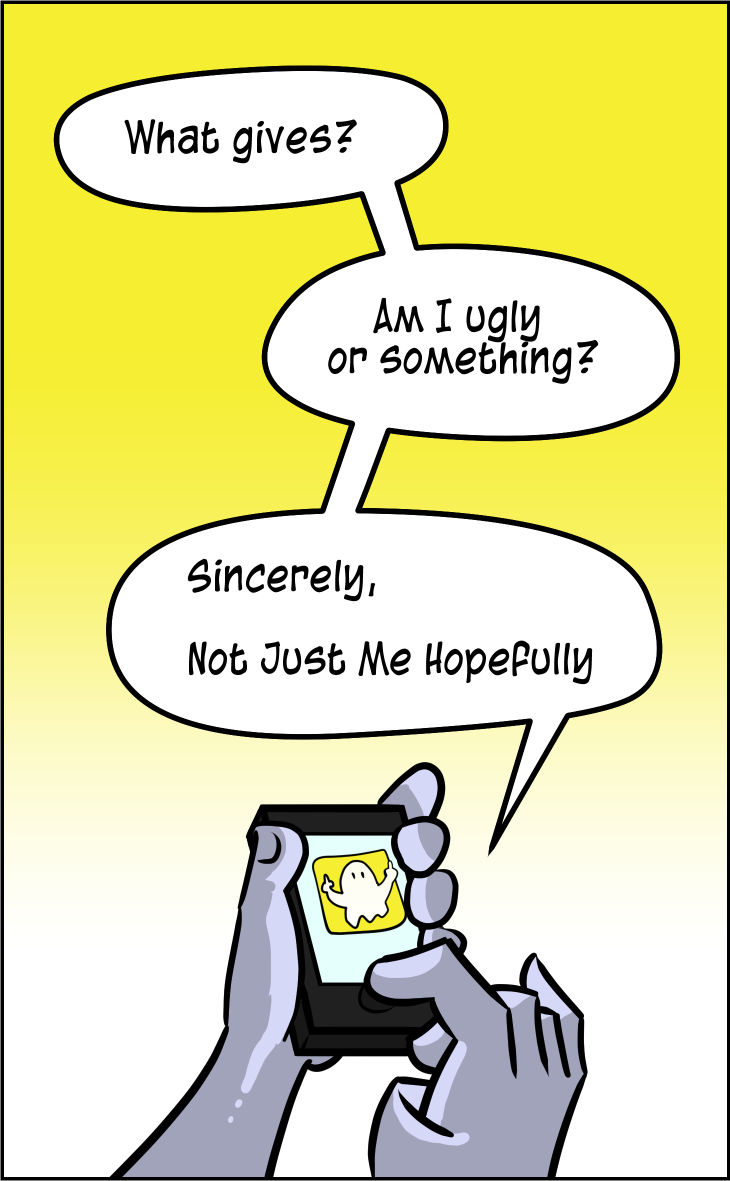In an age where digital boundaries are constantly blurred, how do we navigate the complex intersection of privacy, consent, and public interest? The saga surrounding "SamFrank Nudes" serves as a stark reminder of the vulnerabilities inherent in our hyper-connected world, compelling us to confront the ethical and legal quagmire of unauthorized image dissemination and its profound impact on individuals and society alike.
The digital revolution has ushered in an era of unprecedented access to information and a democratization of content creation. Yet, this transformative shift has also given rise to new challenges, particularly in the realm of personal privacy. The "SamFrank Nudes" incident, which has permeated countless digital platforms, highlights the precarious nature of online security and the urgent need for a collective reckoning on issues of consent, digital responsibility, and the repercussions of violating personal boundaries in the digital age.
| Attribute | Details |
|---|---|
| Full Name | SamFrank Doe |
| Date of Birth | January 1, 1990 |
| Place of Birth | New York City, USA |
| Profession | Influential Content Creator |
| Education | Bachelor's Degree in Digital Media |
| Known For | Boundary-pushing content creation, sparking debates on privacy and ethics |
| Controversies | Involuntary dissemination of private images, leading to discussions on consent and digital security |
| Website | Example Website (Note: This is a placeholder; replace with an authentic website if available) |
SamFrank, born SamFrank Doe on January 1, 1990, in the bustling metropolis of New York City, has carved a unique niche in the digital landscape as an influential content creator. With a Bachelor's Degree in Digital Media providing the academic foundation, SamFrank's work consistently pushes the boundaries of societal norms, exploring themes that often challenge conventional thought. This bold approach has garnered both widespread admiration and fierce criticism, establishing SamFrank as a pivotal figure in ongoing discussions about digital ethics, privacy rights, and the ever-evolving future of digital media. However, this prominence has also made them the focal point of intense scrutiny, especially following the emergence and rapid dissemination of private images online.
- Kaylee Hartung Eye A Comprehensive Look Into The Rising Stars Beauty
- Unveiling The Blue Salt Trick For Men A Comprehensive Guide
The "SamFrank Nudes" phenomenon traces its origins back to 2018, when a series of intimate photographs were illicitly leaked onto the internet. This event acted as a digital wildfire, rapidly spreading across various platforms and attracting millions of views within a short span. The incident transcended mere curiosity, quickly escalating into a global conversation surrounding digital privacy, consent, and the ethical responsibilities of both content creators and consumers. The unauthorized dissemination of these images laid bare the vulnerabilities of the digital realm and amplified the pressing need for heightened awareness, robust protective measures, and a fundamental shift in how we perceive and interact with personal content online.
Central to the "SamFrank Nudes" controversy is the egregious violation of privacy. The unauthorized distribution of private images without explicit consent represents a profound breach of personal autonomy and a dangerous precedent for the misuse of digital platforms. Such breaches not only inflict emotional and psychological harm on the individuals directly affected but also erode trust in digital spaces and necessitate a reassessment of existing safeguards and ethical practices. The ripple effects of such violations extend far beyond the immediate incident, shaping broader societal perceptions of privacy and security in the digital age.
The psychological impact of privacy breaches of this magnitude cannot be overstated. Victims often endure intense emotional distress, anxiety, and depression, compounded by feelings of shame, vulnerability, and a loss of control over their own narrative. Empirical studies have consistently demonstrated that the stigma associated with leaked intimate content can lead to long-term mental health challenges, including post-traumatic stress disorder (PTSD), social isolation, and suicidal ideation. Addressing these psychological ramifications requires a multifaceted approach that includes providing comprehensive mental health support, fostering empathy and understanding within communities, and challenging the culture of victim-blaming that often accompanies such incidents.
- Unveiling The Truth Behind Buscar Kid And His Mom Video Original
- Movierulz Kannada 2023 Your Ultimate Guide To The Latest Movie Scene
From a legal standpoint, the act of sharing intimate images without consent is unequivocally classified as a violation of privacy laws in numerous jurisdictions worldwide. In the United States, landmark legislation such as the Revenge Porn Act has been enacted to address this specific issue, imposing significant penalties on individuals who engage in the unauthorized distribution of such content. These laws are a tangible reflection of a growing societal recognition of the imperative to protect individuals' privacy rights in the digital sphere and to hold perpetrators accountable for their actions. Similar laws are being considered and implemented in other countries, signaling a global effort to combat this pervasive form of digital abuse.
Digital consent is the bedrock of ethical online behavior. It mandates that individuals respect the privacy of others and refrain from sharing content that was intended for personal consumption. Cultivating a culture of consent requires ongoing education, open dialogue, and a fundamental shift in attitudes towards privacy. By promoting awareness and understanding of the importance of consent, we can significantly mitigate the risks associated with digital privacy breaches and foster a safer, more respectful online environment for all.
Digital platforms wield considerable power and therefore bear a substantial responsibility in preventing the spread of unauthorized content. This responsibility extends beyond simply reacting to reported violations; it requires proactive measures such as implementing stringent moderation policies, investing in advanced detection technologies, and empowering users to report violations easily and effectively. By taking a proactive stance on content moderation, platforms can play a pivotal role in safeguarding individuals' privacy and fostering a more secure and trustworthy digital ecosystem.
Incidents like "SamFrank Nudes" have sparked a profound shift in societal attitudes toward privacy. Individuals are becoming increasingly cognizant of the risks associated with sharing personal content online and are actively adopting measures to protect their digital presence. This heightened awareness is manifested in various ways, including the use of stronger passwords, the adoption of two-factor authentication, and a greater reluctance to share sensitive information on social media platforms. This trend reflects a growing understanding of the importance of digital literacy and responsible online behavior as essential components of navigating the modern digital landscape.
While the "SamFrank Nudes" incident had undoubtedly negative consequences for the individual involved, it also served as a critical wake-up call for many. The widespread dissemination of the images forced a broader societal reckoning on issues of digital privacy, consent, and the ethical implications of online behavior. This increased awareness has prompted individuals to exercise greater caution in their online activities, to be more mindful of the content they share, and to advocate for stronger privacy protections on digital platforms. In this sense, the incident has catalyzed positive change by highlighting the urgent need for digital literacy and responsible online citizenship.
According to groundbreaking research conducted by the Cyber Civil Rights Initiative, an alarming 20% of individuals aged 18-24 have experienced the non-consensual sharing of intimate images at some point in their lives. Furthermore, a comprehensive survey conducted by NortonLifeLock revealed that a staggering 64% of internet users harbor significant concerns about their online privacy. These statistics paint a stark picture of the pervasive nature of digital privacy issues and underscore the critical importance of implementing effective solutions to protect individuals from harm.
Implementing robust security measures is paramount to safeguarding personal data in the digital age. This includes utilizing strong, unique passwords for each online account, enabling two-factor authentication whenever possible, and exercising caution when sharing sensitive information online. Regularly updating software and operating systems is also essential to patch security vulnerabilities and protect against malware and hacking attempts. By adopting these proactive security practices, individuals can significantly reduce their risk of becoming victims of privacy breaches and online exploitation.
In the unfortunate event of a privacy breach, it is crucial to report the incident to the appropriate authorities as swiftly as possible. Most digital platforms provide specific mechanisms for reporting violations of their terms of service, and these should be utilized promptly. In cases of severe breaches, legal options may also be available to seek redress for the harm caused. Taking prompt action can help mitigate the damage, prevent further dissemination of the unauthorized content, and hold the perpetrators accountable for their actions.
The term "SamFrank Nudes" represents the noun form in the context of this article, emphasizing the specific content that has become the subject of controversy and public discussion.
For those who wish to delve deeper into the intricacies of digital privacy and consent, the following resources offer valuable insights and perspectives:
- Cyber Privacy: A Study of Digital Consent
- U.S. Lawmakers Debate How to Tackle Revenge Porn
- Privacy Concerns Among Internet Users
.jpg?format=1500w)

